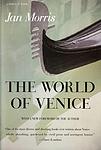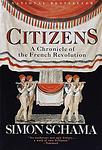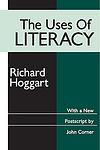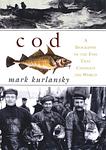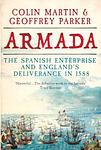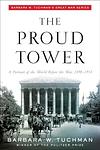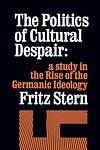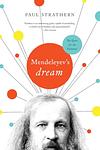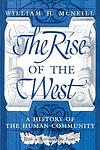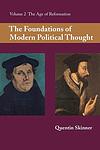The Greatest American, British "Nonfiction, European History" Books Since 1950
Click to learn how this list is calculated.
This list represents a comprehensive and trusted collection of the greatest books. Developed through a specialized algorithm, it brings together 300 'best of' book lists to form a definitive guide to the world's most acclaimed books. For those interested in how these books are chosen, additional details can be found on the rankings page.
Genres
European History is a category of books that focuses on the historical events, people, and cultures of Europe. It covers a wide range of topics, including the ancient civilizations of Greece and Rome, the Middle Ages, the Renaissance, the Enlightenment, and the modern era. This category of books explores the political, social, economic, and cultural developments that have shaped Europe over the centuries, from the rise and fall of empires to the impact of wars and revolutions. It provides readers with a deeper understanding of the rich and complex history of Europe and its influence on the world.
Countries
Date Range
Reading Statistics
Click the button below to see how many of these books you've read!
Download
If you're interested in downloading this list as a CSV file for use in a spreadsheet application, you can easily do so by clicking the button below. Please note that to ensure a manageable file size and faster download, the CSV will include details for only the first 500 books.
Download-
1. The Making of the English Working Class by E. P. Thompson
This book is a comprehensive historical analysis of the formation of the English working class from the late 18th century to the mid-19th century. The author meticulously examines various aspects of society including the Industrial Revolution, the rise of Methodism, and political movements, arguing that the working class was not a byproduct of economic factors alone, but was actively self-formed through struggles over issues like workers' rights and political representation. The book is widely regarded as a seminal text in social history due to its focus on the experiences and agency of ordinary people.
-
2. The Guns of August by Barbara Tuchman
"The Guns of August" is a detailed and engaging account of the first month of World War I. The book explores the events leading up to the war, the political and military strategies of the various countries involved, and the critical decisions that shaped the course of the conflict. It presents a vivid picture of the war's early stages, highlighting the miscalculations, miscommunications, and misunderstandings that led to one of the most devastating wars in history.
-
3. The Great War and Modern Memory by Paul Fussell
"The Great War and Modern Memory" is a critical analysis of the impact of World War I on the English society and culture. The author explores the war's influence on literature, language, and symbolism, arguing that the horrific experiences of the war drastically altered public perception and understanding of conflict, honor, and heroism. The book combines literary criticism, history, and social commentary to provide a comprehensive examination of the war's lasting effects on the collective memory of the English-speaking world.
-
4. A Time Of Gifts by Patrick Leigh Fermor
The book is a vivid memoir that chronicles the adventures of a young man as he embarks on a remarkable journey on foot across Europe in the 1930s. Starting from the Hook of Holland, he traverses through landscapes and cities, encountering a diverse tapestry of cultures, languages, and historical remnants. Along the way, he is welcomed by a variety of individuals, from aristocrats to peasants, who enrich his experience with their stories and hospitality. His travels provide not only a physical journey through the continent but also a journey through time, as he reflects on the complexities of Europe's past and the ominous shadows cast by the approaching Second World War.
-
5. Venice by Jan Morris
This book provides an in-depth exploration of the city of Venice, delving into its history, culture, architecture, and its unique geographical attributes. It paints a vivid picture of the city in its glory days, as well as its present state, with all its beauty and decay. The author's personal experiences and observations are woven into the narrative, offering readers an intimate and engaging tour of the city. The book also discusses the city's influence on art, literature, and music, and its enduring allure for travelers from around the world.
-
6. Alan Turing by Andrew Hodges
This biography provides a comprehensive look at the life and work of a pioneering computer scientist and mathematician who played a crucial role in breaking the Enigma code during World War II. It delves into his groundbreaking contributions to the development of computer science, his tragic prosecution for homosexuality, and his enduring legacy in the field of artificial intelligence and computing. The book not only celebrates his scientific achievements but also examines the social context of his time, shedding light on the challenges he faced and the impact of his work on future generations.
-
7. The Rise and Fall of the Third Reich by William L. Shirer
This book provides a comprehensive history of Adolf Hitler's Third Reich, from its inception to its downfall during World War II. The author, an American journalist who reported from Germany and Austria during the Nazi era, uses firsthand accounts, interviews, and Nazi documents to detail Hitler's rise to power, the mechanisms of the Nazi state, and the events leading to and during World War II, including the Holocaust. The book concludes with an analysis of why the Third Reich fell and the aftermath of its collapse.
-
8. Citizens by Simon Schama
"Citizens" is a detailed and comprehensive exploration of the French Revolution, offering a fresh perspective on the historical event. The book examines the revolution from its earliest beginnings to its aftermath, delving into the causes, key figures, and the immediate and long-term consequences. It provides a vivid and engaging account, highlighting that the revolution was not just a period of bloodshed and turmoil, but also a time of radical political and social change that shaped the course of modern history.
-
9. The Uses of Literacy by Richard Hoggart
"The Uses of Literacy" is a sociological study that explores the impact of mass media and popular culture on traditional working-class values and communities in Britain during the mid-20th century. The author combines personal memoir with scholarly analysis to examine how the spread of American consumer culture and the rise of mass media have influenced British society, especially among the working class. The book serves as a critique of the commercialization of culture and the erosion of authentic, local cultures and traditions.
-
10. Postwar by Tony Judt
"Postwar" is a comprehensive analysis of the history of Europe from the end of World War II to the early 21st century. The book examines the major political, cultural, social, and economic changes that have shaped the continent, including the Cold War, the rise and fall of the Soviet Union, the rebuilding of Western Europe, and the challenges of integrating Eastern Europe into the European Union. It also delves into the impact of these events on the daily lives of Europeans, exploring themes of memory, identity, and the struggle to come to terms with the past.
-
11. The Family, Sex and Marriage in England 1500-1800 by Lawrence Stone
This scholarly work provides an in-depth analysis of the transformation of family life, sexual mores, and marital structures in England from the 16th to the 18th century. It examines the shift from the medieval extended family to the closed domesticated nuclear family, exploring how economic, social, legal, and cultural changes influenced personal relationships and societal norms. The book delves into the roles of love, sex, and marriage during this period, revealing how the evolution of these concepts was intertwined with broader historical developments such as the Protestant Reformation, the rise of individualism, and the changing economic landscape. Through meticulous research, the text presents a comprehensive view of how private life was redefined over three centuries, reflecting the complex interplay between tradition and change in early modern England.
-
12. Cod: A Biography of the Fish that Changed the World by Mark Kurlansky
This book is a fascinating exploration of the historical, cultural, economic, and ecological impact of the codfish. It traces the role of this fish in shaping economies, sparking wars, and influencing culinary trends across centuries and continents. The book also delves into the devastating effects of overfishing and the current struggle to sustain cod populations. The narrative combines history, science, and gastronomy to present a comprehensive biography of this significant fish species.
-
13. The Rise And Fall Of The Great Powers by Paul Kennedy
The book in question offers a comprehensive analysis of the economic and military factors that have shaped the relative power of nations from the 16th century to the late 20th century. It argues that the rise and fall of great powers are closely linked to their ability to manage economic resources and maintain military strength. The author examines the patterns of history to show how the overextension of an empire's resources often leads to decline, and suggests that managing the balance between wealth and power is crucial for the longevity of a great power. The book also provides insights into the potential future of global power dynamics by considering the implications of these historical patterns for contemporary superpowers.
-
14. Lenin's Tomb: The Last Days of the Soviet Empire by David Remnick
This book provides an in-depth account of the final days of the Soviet Union, focusing on the period from 1989 to 1991. It explores the political, economic, and social factors that led to the collapse of the Soviet empire, including the role of key figures such as Mikhail Gorbachev, Boris Yeltsin, and others. The author, a journalist who lived in Moscow during this time, combines historical analysis with personal observations and interviews, offering a unique perspective on this significant period in world history.
-
15. The Armada by Garrett Mattingly
"The Armada" is a comprehensive historical account of the attempted invasion of England by the Spanish Armada in 1588. This work meticulously chronicles the political and religious turmoil of the era, the strategic planning and execution of the naval campaign by the Spanish, and the defensive maneuvers of the English under the leadership of Queen Elizabeth I. The narrative delves into the personalities of key figures, the technological and tactical aspects of 16th-century naval warfare, and the broader European context, culminating in a detailed examination of the battles and the Armada's eventual disastrous defeat, which had lasting consequences for the balance of power in Europe.
-
16. Cavaliers And Roundheads by Christopher Hibbert
"Cavaliers and Roundheads" is a historical account that delves into the turbulent period of the English Civil War in the 17th century, offering a detailed narrative of the conflict between the Royalists (Cavaliers) and the Parliamentarians (Roundheads). The book provides a comprehensive analysis of the political, religious, and social factors that fueled the war, while also painting vivid portraits of the key figures involved, including King Charles I and Oliver Cromwell. Through meticulous research and engaging storytelling, the work captures the complexities of the era, the brutal battles, and the ultimate transformation of the English monarchy and parliamentary system.
-
17. The Proud Tower by Barbara Tuchman
This historical work delves into the tumultuous period preceding World War I, capturing the social, political, and cultural landscape of the world from the 1890s through the early 20th century. The narrative weaves through various countries and influential figures, examining the contrasts between the wealth of the elite and the struggles of the working class, the rise of anarchism, and the complexities of pre-war diplomacy. It paints a vivid picture of an era marked by both grandeur and the simmering tensions that would eventually lead to one of the most devastating conflicts in human history.
-
18. The Origins Of Totalitarian Democracy by J. L. Talmon
The book explores the historical development of the concept of totalitarian democracy, a political system that combines an official ideology with an authoritarian regime, claiming to represent the will of the people. It delves into the paradoxical nature of this form of government, which seeks to achieve a utopian ideal of democracy through undemocratic means. The author traces the roots of this phenomenon back to the Enlightenment and the French Revolution, examining the ideological underpinnings and the evolution of political thought that led to the emergence of totalitarian regimes in the 20th century. The work is a critical analysis of how revolutionary movements can devolve into oppressive systems that justify their actions in the name of democracy and the public good.
-
19. The Struggle For Mastery In Europe by A. J. P. Taylor
The book provides a comprehensive analysis of European international politics from the aftermath of the Napoleonic Wars to the outbreak of World War I. It examines the complex system of alliances, crises, and diplomatic maneuvers that characterized the continent during the 19th century, focusing on the quest for dominance among the great powers. The narrative delves into the balance of power principle, the role of nationalism, and the impact of economic and military factors on the relationships between countries such as Britain, France, Germany, Austria-Hungary, Russia, and Italy. Through a detailed account of treaties, wars, and diplomatic strategies, the work explores how the struggle for supremacy shaped the modern European state system and sowed the seeds for future conflicts.
-
20. The Politics Of Cultural Despair by Fritz Stern
This book is a critical historical analysis that delves into the intellectual roots of cultural pessimism in Germany leading up to the rise of National Socialism. It examines the works and influence of three prominent conservative critics from the late 19th and early 20th centuries, who lamented the perceived decline of traditional values and the erosion of social cohesion in the face of modernity and liberalism. The author argues that their reactionary critique of contemporary culture and their yearning for a return to an idealized past laid the groundwork for the ideological underpinnings of fascism, demonstrating how cultural despair can be manipulated into political extremism.
-
21. Mendeleyev's Dream by Paul Strathern
This book traces the history of chemistry from the ancient philosophers' wild speculations about the composition of the universe to the creation of the periodic table by Dmitri Mendeleyev. Through a blend of storytelling and science, it explores the development of atomic theory and chemical elements, leading up to Mendeleyev's groundbreaking dream in which he envisioned the periodic table in its modern form. The narrative delves into the lives and discoveries of key figures in the field of chemistry, illustrating how their work contributed to our understanding of the elements that make up the world around us.
-
22. The Rise of the West by William H. McNeill
"The Rise of the West" is a comprehensive historical narrative that explores the development of Western civilization from the early stages of human history to the 20th century. The book provides a detailed analysis of various civilizations around the world, their interactions, and the resulting cultural exchanges that have shaped the modern world. It also discusses the significant factors, such as technological advancements, religious transformations, and political changes, that have contributed to the West's ascendancy.
-
23. Mary Queen Of Scots by Antonia Fraser
This historical biography delves into the tumultuous life of a sixteenth-century queen who became a figure of romantic tragedy. Born into a world of political intrigue, she ascended to the Scottish throne as an infant and was later married to the French Dauphin, becoming queen consort of France. Her reign was marked by a series of ill-fated marriages, complex political maneuvers, and religious upheaval. Ultimately, she was imprisoned and executed by her cousin, the Queen of England, after being implicated in a plot to claim the English crown. The book provides a detailed examination of her life, the challenges she faced, and her enduring legacy in history.
-
24. Russian Thinkers by Isaiah Berlin
The book is a collection of essays exploring the ideas of key 19th-century Russian intellectuals who shaped the social, political, and cultural contours of their time. It delves into the works and impact of thinkers such as Alexander Herzen, Ivan Turgenev, and Leo Tolstoy, examining their contributions to debates on Russian identity, the role of the intelligentsia, and the future of their nation. The author critically analyzes the ideological conflicts between Westernizers and Slavophiles and the struggle to reconcile Western European liberal thought with uniquely Russian conditions, offering insights into the philosophical underpinnings of Russia's historical trajectory.
-
25. The Foundations Of Modern Political Thought by Quentin Skinner
This book is a seminal work in intellectual history, offering a comprehensive analysis of the development of political thought during the Renaissance and the Reformation. The author meticulously examines the evolution of key political concepts and the context in which they arose, tracing the transition from medieval to early modern political theory. The text delves into the writings of influential thinkers and the impact of their ideas on the structure of government and the nature of individual rights, ultimately providing a detailed understanding of the origins of modern political ideologies and institutions.
Reading Statistics
Click the button below to see how many of these books you've read!
Download
If you're interested in downloading this list as a CSV file for use in a spreadsheet application, you can easily do so by clicking the button below. Please note that to ensure a manageable file size and faster download, the CSV will include details for only the first 500 books.
Download



